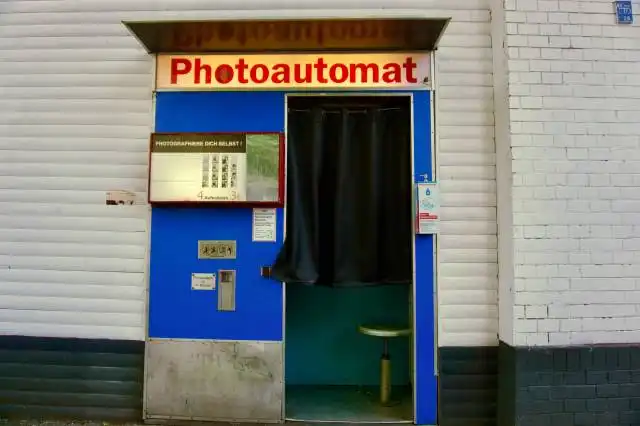Start a Party Rental Business
Be the Fairy Godparent of Fabulous Parties!
| Updated


PARTY RENTAL BUSINESS
Ever dreamed of being the unseen magic behind unforgettable celebrations? Consider launching a party rental business! This zesty enterprise rents out everything from tables, chairs, tents, to eye-popping decor and party props to hosts eager to throw a stellar bash. Get that champagne popping - because as long as people love a good party, your business venture will never be out of demand! Your role? Making sure every party is dressed to thrill while watching your profits sparkle.
Jump to Business Plan
RELATED BUSINESS IDEAS
Browse ALL Rental & Delivery Services Business Ideas
Discover Your Perfect Domain
Unlock the door to your online success with our hand-picked selection of premium domain names. Whether you're starting a new venture or rebranding an existing one, the right domain can set the tone for your digital presence. Browse through our curated list, each with its unique potential to enhance your brand's visibility and credibility.
PARTY RENTAL MINI BUSINESS PLAN
This a quick reality check to help you identify the strengths and weaknesses of your business concept before you dive in.
Expected Percent Margin:
- Gross Margin: 80-90%
- Net Margin: 25-35%
Earnings Expectations:
1. Daily Earnings: $150 - $450 2. Weekly Earnings: $1,050 - $3,150 3. Monthly Earnings: $4,500 - $13,500 4. Annual Earnings: $54,600 - $162,000
Actions to Hit Those Numbers:
Initial Startup Costs:
- Initial Investment: Approximately $20,000 - $50,000 to cover the cost of inventory (ekg. chairs, tables, popcorn machines, speakers), a truck for transport, insurance and other startup expenses.
Profitability Factors:
- Niche Selection: Choose a rental niche that's in demand within your area (could be wedding decorations, corporate event equipment, kids’ birthday parties, etc.) and keep up-to-date with trending party themes.
Marketing and Public Relations:
- Leverage Social Media: Post attractive photos and videos of past events handled and inventory. Target social media ads to your local area.
- Create a user-friendly website: Make it easy to browse inventory, check availability and book online.
Inventory Maintenance:
- Check after each rental: This includes cleaning and repairing items to keep them desirable and in rentable condition.
Cost Control and Business Operations:
- Keep overheads low: For example, start by running the business from home.
- Keep transport costs low: This can be achieved by focusing on customers within a set radius.
Excellent Customer Service:
- Provide excellent customer service: This is key in the event rental industry. Satisfied customers are likely to become repeat customers and provide positive word-of-mouth advertising for your business.
These numbers are general approximations and are highly dependent on specific circumstances such as location, demand, business strategy, etc. Consult with a business advisor or consultant for personalized advice.
NOT WHAT YOU HAD IN MIND? Here are more ideas



Browse ALL Rental & Delivery Services Business Ideas
Grab Your Business Website Name
Before you get caught up in the whirlwind of setting up your business, invest in a domain name. It's a small but significant step that lays the foundation for your brand and makes it easier for customers to find and trust you. Just like you wouldn't build a house without securing the land first, don't build a business without securing your domain name.
"Why? Can't that wait?" Here's why it shouldn't
Step 1: Determine if a Party Rental Business is Right for You
Breakdown of Startup Expenses
Before starting a party rental business, it is important to understand the startup expenses that will be required. This includes the cost of renting a space, purchasing equipment, and any marketing costs. It is also important to consider the cost of insurance, licenses, and permits. Additionally, it is important to factor in the cost of any staff that may be required to help run the business.
Breakdown of Ongoing Expenses
It is also important to understand the ongoing expenses associated with a party rental business. This includes the cost of maintaining equipment, purchasing supplies, and any other costs associated with running the business. Additionally, it is important to factor in the cost of any staff that may be required to help run the business.
Examples of Ways to Make Money
There are several ways to make money with a party rental business. This includes renting out equipment, such as tables and chairs, as well as providing services, such as catering and entertainment. Additionally, it is possible to make money by offering packages, such as all-inclusive packages for weddings or other special events. Finally, it is possible to make money by offering discounts and promotions to customers.
Step 2: Name the Business
Choosing the right name for a business is a critical step in the process of starting a party rental business. It is important to pick a name that will be memorable and that will reflect the type of business that is being started. It is also important to make sure that the name is not already taken by another business. It is best to pick a name that is unique and that will stand out from the competition.
When choosing a name, it is important to consider the type of business that is being started. For example, if the business is going to specialize in children’s parties, then the name should reflect that. Additionally, if the business is going to be a one-stop shop for all types of party rentals, then the name should reflect that as well.
It is also important to consider the target audience when choosing a name. For example, if the business is targeting young adults, then the name should be more modern and hip. On the other hand, if the business is targeting families, then the name should be more traditional and family-friendly.
Finally, it is important to make sure that the name is legally available. This means that the name should not be trademarked or copyrighted by another business. It is best to do a thorough search to make sure that the name is available before settling on a name for the business.
Step 3: Create a Business Plan
Creating a business plan is an important step in starting a party rental business. It should include an executive summary, a description of the business, a market analysis, an organizational plan, a financial plan, and a description of the products and services.
The executive summary should include a brief overview of the business, the goals, the target market, and the competitive advantage. It should also include a description of the products and services offered, the estimated startup costs, and the estimated ongoing costs.
The description of the business should include the legal structure, the location, the ownership, and the management team. It should also include a description of the products and services offered and the target market.
The market analysis should include an analysis of the industry, the target market, the competition, and the marketing strategies. It should also include a description of the pricing strategy and the estimated sales volume.
The organizational plan should include a description of the organizational structure, the roles and responsibilities of the management team, and the operational plan. It should also include a description of the hiring process and the estimated staffing needs.
The financial plan should include a description of the startup costs, the ongoing costs, and the estimated sales volume. It should also include a description of the financial projections, the estimated profits, and the estimated cash flow.
The description of the products and services should include a description of the products and services offered, the estimated cost of the products and services, and the estimated delivery time. It should also include a description of the pricing strategy and the estimated sales volume.
Step 4: Obtain Licenses and Permits
When starting a party rental business, it is important to obtain the necessary licenses and permits. Depending on the state, city, and county, the licenses and permits required may vary. Generally, a business license, a sales tax permit, and a zoning permit are necessary. Additionally, a health permit may be required if food is being served. It is important to research the specific licenses and permits required in the area the business will be operating in.
How to Obtain Licenses and Permits
The process for obtaining the necessary licenses and permits for a party rental business can vary depending on the area. Generally, the process involves researching the specific licenses and permits required, completing the necessary paperwork, and submitting the paperwork to the appropriate government agency. Additionally, depending on the area, fees may be required to obtain the licenses and permits. It is important to research the specific process for the area the business will be operating in.
Benefits of Obtaining Licenses and Permits
Obtaining the necessary licenses and permits is important for a party rental business. Having the proper licenses and permits can help protect the business from legal issues. Additionally, having the proper licenses and permits can help the business build credibility with customers and suppliers. Furthermore, having the proper licenses and permits can help the business comply with local laws and regulations.
Potential Challenges
Obtaining the necessary licenses and permits for a party rental business can be a challenge. Depending on the area, the process can be time consuming and expensive. Additionally, the paperwork may be confusing and difficult to understand. Furthermore, the process may require multiple trips to the appropriate government agency. It is important to research the specific process for the area the business will be operating in.
Step 5: Secure Financing
Securing financing is a critical step in starting a party rental business. Financing can come from a variety of sources, such as personal savings, a loan from a bank or other financial institution, or from investors. It is important to research the different types of financing available and decide which is the best option for the business. When considering a loan, it is important to understand the terms and conditions of the loan, such as the interest rate and repayment schedule. Additionally, investors may require a stake in the business in exchange for their investment.
Create a Business Plan
Creating a business plan is an important step in securing financing. A business plan should include an executive summary, a market analysis, a description of the business, a financial plan, and a plan for marketing and sales. The business plan should be thorough and include detailed information about the business, such as the startup costs, the ongoing expenses, and the potential revenue streams. Additionally, the business plan should include a timeline for launching the business and a plan for achieving the goals of the business.
Apply for Financing
Once the business plan is complete, it is time to apply for financing. This may involve submitting the business plan to banks or other financial institutions, or presenting the business plan to potential investors. It is important to be prepared for the application process, as lenders and investors will want to see a well-thought-out plan and a clear understanding of the business. Additionally, it is important to be prepared to answer questions about the business and to provide any additional information that may be requested.
Step 6: Purchase Equipment
When starting a party rental business, it is important to determine what types of equipment are needed. This could include tables, chairs, tents, linens, dishes, and other items. It is important to research the different types of equipment available, as well as the cost associated with each item. Additionally, it is important to consider the size of the equipment needed, as well as the number of items needed to accommodate the number of guests expected.
Where to Purchase
Once the types of equipment needed have been determined, it is important to decide where to purchase the items. This could include purchasing from a local store, or from an online retailer. Additionally, it may be possible to purchase second-hand items from other party rental businesses. It is important to compare prices and quality of the items before making a purchase.
Insurance
When purchasing equipment, it is important to consider the need for insurance. This could include insurance to cover any damages to the equipment, or to cover any losses if the equipment is stolen. Additionally, it is important to consider any additional insurance that may be needed, such as liability insurance.
Maintenance
When purchasing equipment, it is important to consider the need for maintenance. This could include regular cleaning and inspection of the equipment, as well as any repairs that may be needed. Additionally, it is important to consider any additional maintenance that may be needed, such as replacing parts or replacing items that have become worn or damaged.
Step 7: Market Your Business
Once you have your business up and running, it is important to get the word out. There are many ways to market your party rental business. You can start by creating a website and social media accounts to showcase your services and products. You can also create a blog to share helpful tips and advice related to party planning. Additionally, you can create flyers and posters to distribute in your local area. You can also partner with local event planners and venues to reach a larger audience.
Advertising
Advertising is another great way to get the word out about your business. You can advertise in local newspapers, magazines, and radio stations. You can also use online advertising platforms such as Google Ads and Facebook Ads. Additionally, you can create promotional videos and post them on YouTube and other social media platforms. You can also use email marketing to reach potential customers.
Networking
Networking is an important part of any business and it is especially important for a party rental business. You can join local business groups and attend events to meet potential customers. You can also join online forums and groups related to party planning and event planning. Additionally, you can reach out to local event planners and venues to form partnerships.
Word of Mouth
Word of mouth is one of the most powerful marketing tools. You can ask your existing customers to spread the word about your business. You can also offer discounts and incentives to customers who refer your business to their friends and family. Additionally, you can create a loyalty program to reward your customers for their continued support.
Step 8: Set Up an Accounting System
Setting up an accounting system is critical for any business. There are various types of accounting systems available, including cash-basis accounting, accrual-basis accounting, and double-entry accounting. Cash-basis accounting is the simplest and most commonly used system, as it records income and expenses when money is exchanged. Accrual-basis accounting records income and expenses when they are incurred, regardless of when money is exchanged. Double-entry accounting is the most complex and accurate system, as it requires two entries for each transaction.
Choosing an Accounting System
When choosing an accounting system, it is important to consider the size of the business, the complexity of the business, and the budget. For small businesses, cash-basis accounting is usually the best option. For larger businesses, double-entry accounting is often the most appropriate choice. It is also important to consider the cost of the accounting system, as some systems can be quite expensive.
Setting Up the System
Once the type of accounting system is chosen, the next step is to set it up. This involves creating accounts for income, expenses, and assets, as well as setting up the software and entering the initial data. It is important to ensure that the system is set up correctly, as this will make it easier to track and manage finances.
Maintaining the System
Once the system is set up, it is important to maintain it on a regular basis. This involves entering all transactions, reconciling accounts, and running reports. It is also important to regularly review the system to ensure that it is accurate and up-to-date. This will help to ensure that the business is running smoothly and that any potential problems are identified and addressed quickly.
Step 9: Hire Employees
The final step to starting a party rental business is to hire employees. When hiring employees, it is important to consider the skills and experience they bring to the table. It is also important to consider the cost of hiring and training employees. It is important to ensure that the employees have the right attitude and are willing to work hard. Additionally, it is important to make sure that the employees are reliable and trustworthy.
When hiring employees, it is important to create a job description that outlines the duties and responsibilities of the position. This will help to ensure that the employees understand what is expected of them. Additionally, it is important to conduct background checks and drug tests to ensure that the employees are qualified and trustworthy. Furthermore, it is important to provide training to ensure that the employees are up to date on the latest trends and technologies in the party rental industry. Finally, it is important to provide a competitive salary and benefits package to ensure that the employees are motivated and satisfied with their job.
EXPLORE MORE CATEGORIES
Browse ALL Business Idea Categories
TAKE THE NEXT STEPS









